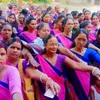From homemaker to changemaker: Seema Khandale’s journey of spreading awareness about sustainable menstrual products
After two decades of being a homemaker, 48-year-old Seema Khandale pursued her Masters in Social Work from IGNOU and set up an NGO to spread awareness about sustainable menstruation options.
The eminent British writer and theologian CS Lewis, once said, “You are never too old to set another goal or to dream a new dream.” 48-year-old Seema Khandale not only took this saying to heart but also practiced it in her life.
A mother of two sons, Seema was always keen on giving back to the community. She wanted to be a productive member of the society and a genuine force for progress. However, due to certain unforeseen circumstances, she was not able to put it into action.
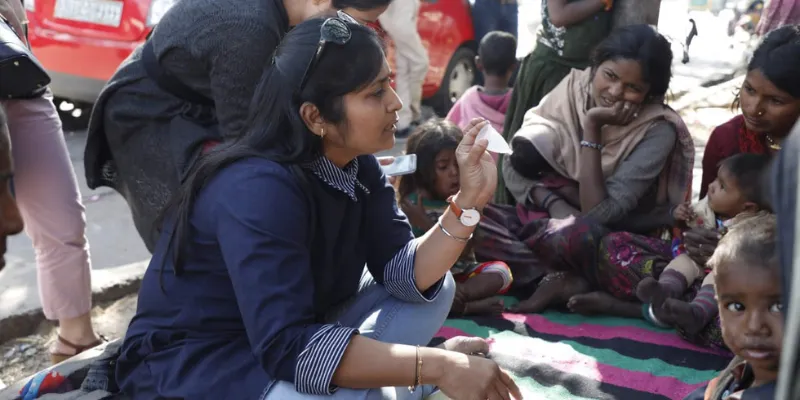
48-year-old Seema Khandale.
Realising that it is never too late, after two decades of being a homemaker, she pursued her Masters in Social Work from The Indira Gandhi National Open University (IGNOU). She put out all the stops and worked hard to complete the course. Subsequently, in 2015, she set up a non-governmental organisation called Ashay Social Group in Mumbai.
Today, the NGO spreads awareness about the harmful effects of plastic on the environment by undertaking a slew of activities – from upcycling old fabrics into cloth bags to introducing sustainable menstruation options.
“All my life, I had been noticing people using a great deal of plastic in their day-to-day lives. Discarded plastic consisting of grocery bags, bottles, straws and food wrappers was a common sight in my neighbourhood. So, I decided to take on the menace and pave the way for a plastic-free and clean environment,” Seema Khandale tells SocialStory.
Working towards a greener environment
The first initiative that Seema undertook was that of making and distributing cloth bags. She started by requesting individuals in her social circle to give away their old sarees, blouses and other dress materials to the NGO. She then employed four women and trained them to stitch bags from the donated clothes. Once the cloth bags were ready, she made it a point to hand them over for free to grocery stores, vegetable shops, and other local supermarkets.
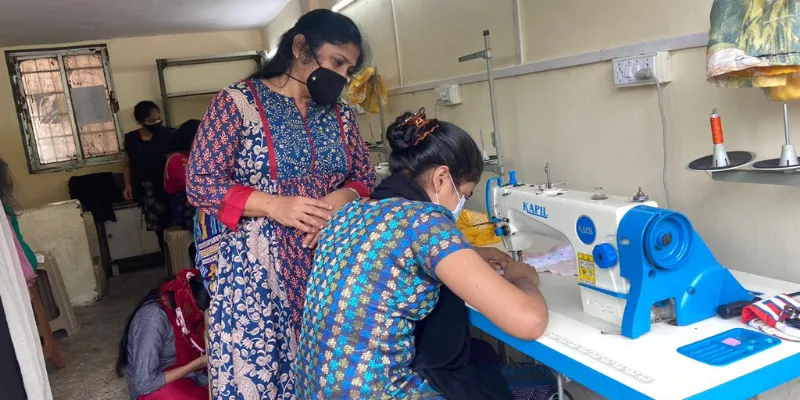
Seema training one of the women in her NGO to make cloth bags.
Seema has been doing this activity for the last five years and continues to work on it even now.
“The idea behind this was to discourage shopkeepers or store owners from giving away plastic bags to their customers. Besides, since cloth bags are reusable in nature, they eventually help in reducing single-use plastics – which would have otherwise been strewn around in a landfill, causing damage to both the human health and the environment,” explains Seema.
Another initiative that Seema launched was that of promoting sustainable menstruation options. The 48-year-old first got to know about menstrual cups when she came across an article about it in the newspaper. Determined to try it out, she bought one. And, surprisingly, she found it to be more comfortable than sanitary pads.
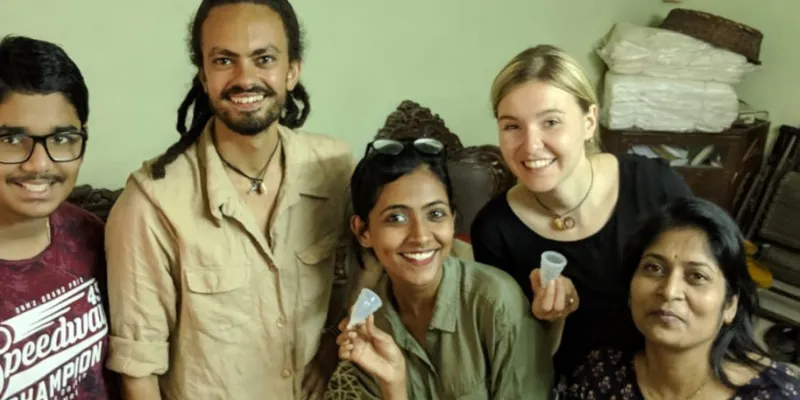
Seema spreads awareness about sustainable menstruation options as part of Ashay Social Group.
Later, Seema realised that they were also sustainable and eco-friendly. While doing further research, she understood that sanitary pads take hundreds of years to decompose due to the presence of plastics.
“I read a statistic which said that every woman tends to use about 11,000 pads or tampons in her lifetime. And, that is a whole lot of plastic,” Seema adds.
So, in 2017, Seema decided to begin creating awareness about menstrual cups. She spoke about it with her friends, family, and started posting videos highlighting its advantages on social media. When her content started to gain popularity, she received invitations from multiple schools, colleges and educational institutions to conduct awareness sessions about sustainable menstruation products. Some of these include SNDT Women’s University, Bhavan’s College, VK Krishna Menon College, Maharashtra State Electricity Board, Maharashtra State Power Generation Company, and State Bank of India.
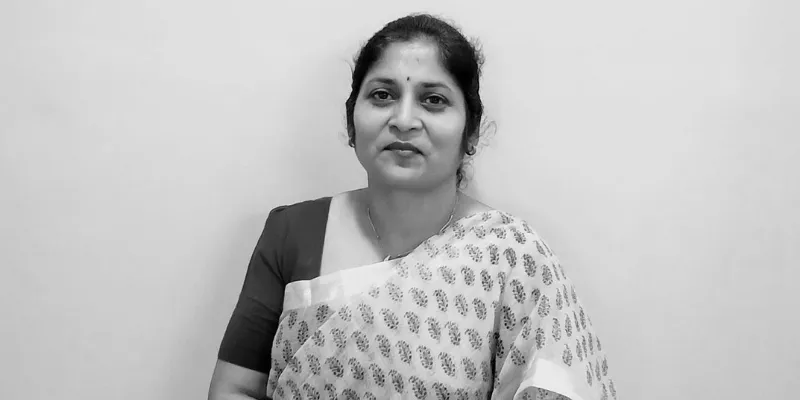
Seema Khandale, a homemaker turned changemaker.
“I generally kick off the sessions by introducing menstrual cups to women and then delve into how it can be fitted in the vagina to collect blood. I touch upon the environmental advantages of using it and also bring to their attention that cups can save them from period hassles – rashes, skin infections as well as leakage,” adds Seema.
To offer access to those women who cannot connect to the internet, Seema even got into manufacturing and selling of menstrual cups. She created her own cup design and outsourced its production to her friend who was a rubber-cum-silicon product manufacturer.
Sold at Rs 555 each, the menstrual cups are known as ‘RUTU’ (meaning season in Marathi) and are made of medically-graded thermoplastic elastomer. So far, Seema has sold over 2,600 menstrual cups.
An inspiration to many
Through Ashay Social Group, Seema has been averting plastic from being dumped in landfills. Her efforts to distribute cloth bags and promote the usage of menstrual cups aims to have a positive impact on the environment. Additionally, she is enabling large-scale public awareness campaigns on the dangers of plastic in and around Mumbai.
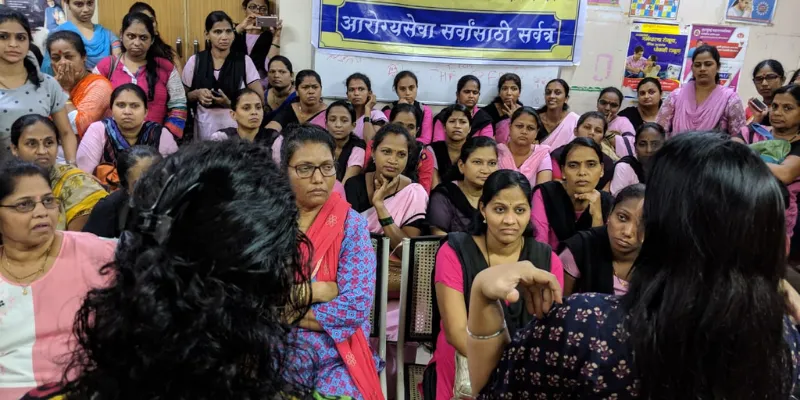
Seema conducting a session to highlight the advantages of using menstrual cups.
However, this was not easy. Seema had to fight many hardships along the journey.
“It was quite difficult to focus and get back to studying after 20 long years. But I did not give up and kept giving my best. Another aspect that proved to be a hindrance was the stigma and taboo surrounding menstruation. Whenever I started talking about menstrual cups, a lot of people used to turn a deaf ear,” says Seema.
Seema is planning to continue her endeavour for years to come to make the environment cleaner and greener for the future generation.
Edited by Kanishk Singh


